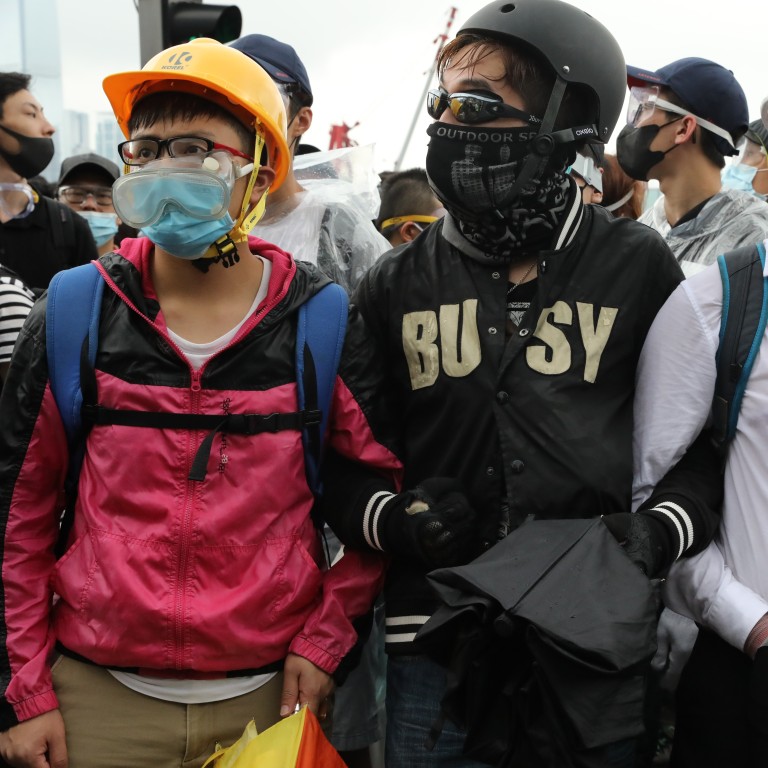One million Hongkongers protested against the extradition bill on June 9, making it one of the most unified demonstrations since the handover in 1997. The scale of the protest might have exceeded the
rally in support of the Tiananmen Square protests in 1989.
Hong Kong’s political system is not fully democratic; its chief executive is selected by a small
Election Committee. Before Carrie Lam Cheng Yuet-ngor was elected in 2017, she claimed that
she would step down as leader if she lost people’s trust. Now that a million Hongkongers have “voted her out” with their feet in a massive protest, Lam is going back on her word and refusing to resign.
She ignored the majority view – the “mainstream opinion” that she had sworn to heed – and insisted on sending the bill to a
second reading in the Legislative Council as scheduled. Her arrogant attitude has angered many people, and young activists
clashed with the police out of despair. The government could blame no one but itself for triggering such conflict.
In fact, Lam and the other two government officials – Secretary for Security John Lee Ka-chiu and Secretary for Justice Teresa Cheng Yeuk-wah – have failed to do their job. They are forcefully sending the bill for a second reading without proper scrutiny by the bills committee, much less the public consultation that Hong Kong people have demanded.
People from different sectors in society have voluntarily
launched petitions against the bill. Even judges, who rarely express a stance, have
spoken out against the bill.
Foreign governments have also expressed serious concerns about the extradition amendment.
The only way for Beijing to safeguard Hong Kong governance and restore people’s confidence is to order Lam to step down. The anti-extradition protests – supported by a wide cross-section of Hong Kong society – will go on for as long as Lam insists on going against public will.
Apart from the petitions initiated by students and other groups, a number of
business owners voluntarily shut up shop on June 12 to allow their workers to join the protest rally. A significant snowball effect is building up. The government and political leaders should not underestimate such a people’s movement.
Hongkongers should keep the focus on Lam’s failing governance, and push for her resignation if the bill is not withdrawn.
So far, the angry protesters who laid siege on the Legislative Council building in Admiralty have successfully forced Legco president Andrew Leung to
twice postpone debate on the bill. Pro-establishment lawmakers who have backed the bill should pull back from the brink and rescind their support.
The controversy over the extradition bill is already threatening to exact an economic cost. Goldin Financial Holdings gave notice on Tuesday that it was
abandoning its offer for a commercial plot in Kai Tak, citing “social contradiction and economic instability”.
Lawmaker Abraham Razack, an independent non-executive director of Goldin, played down the link between the company’s move and the extradition bill,
but said the US-China trade war and “social disharmony in Hong Kong” were concerns.
Thanks to our fearless young people, the second reading of the bill has stalled for now. The world witnessed their bravery when they refused to retreat, regardless of the beating, and the tear gas and rubber bullets fired by the police. It is time for all Hongkongers to stand together with our young people, and say no to extradition.
If the bill is passed forcefully in Legco, pro-establishment supporters should reflect on whether the lawmakers they elected are truly fighting for Hong Kong’s interests, while the people who care little about politics should consider casting their first vote in the next election in 2020. Hong Kong democrats should also draw up new strategies for the upcoming elections to regain their
veto power.
Albert Cheng King-hon is a political commentator. [email protected]


